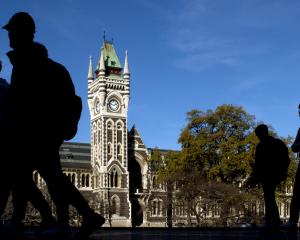
Unless you live in South Canterbury, which has its anniversary holiday in September, this is the first public holiday weekend since Matariki in mid-July. Anyone fortunate enough to live in Hawke’s Bay gets a four-day weekend as their anniversary celebration occurred last Friday.
Garden centres and hardware stores make the most of us emerging from our winter torpor to tackle the garden and do-it-yourself projects we could not undertake in cooler weather (or were too lazy to). Other workers hope the weather gods will shine on them and make the most of getting away from chores for a break out of town and a breather before the pre-Christmas mayhem.

This year’s Labour Weekend has rolled around a week after our general election, at a time when we do not know for sure how our new government will look. Many workers may well be nervous about what might be in store.
We already know the three parties which could end up in a coalition, National, Act New Zealand and New Zealand First favour the return of the option of 90-day trials for all employers. Now, only employers with fewer than 20 employees can use these trials. Originally introduced in 2009 by a National-led government for employers with fewer than 20 employees, they were sold as a way for employers to take on people they might not usually look twice at. It was also considered they would stimulate employment by reducing the cost to small firms if an employee was a dud. Two years later they were extended to all employers before in 2019 Labour, under the influence of NZ First, changed the law to apply only to the smaller firms.
They have dubious value. Treasury-funded research showed they did not increase firms’ overall hiring and nor did they increase the likelihood the new employee would be a disadvantaged worker.
The contentious Fair Payment Agreements system designed to bring about employment terms and conditions for all workers in an industry or occupation look set to be scrapped, with National and Act against them.
We wonder how hard Act will push on its grab bag of workplace polices which include reducing sick pay to five days annually, rather than 10, stopping any minimum wage increases for the next three years, and removing the January 2 public holiday.
Last year National leader Christopher Luxon walked back his enthusiasm for removing a public holiday to offset the new Matariki holiday (after stoking controversy by suggesting dropping Labour Day would be an option). Whether some arm-twisting from Act over the January 2 proposal could make him revisit that idea remains to be seen.
And another thing...
Next weekend the All Blacks will take the field for the fifth time in a Rugby World Cup final, this time against South Africa in France.
It has been a disappointing tournament for the French team despite the hope playing at home would give them the edge to break their RWC habit of being the bridesmaid and never the bride.
They did roundly beat the All Blacks in pool play, of course, but there will be little comfort in that should New Zealand win next weekend.
But if sporting tournaments were predictable, they would be boring, and we wouldn’t watch them.
Whatever the final result, we should be proud of the way the All Blacks, after a shaky start, have romped to the finish line.
We hope those baying for the blood of coach Ian Foster not so long ago are eating a little humble pie, even if it is not standard French cuisine.











